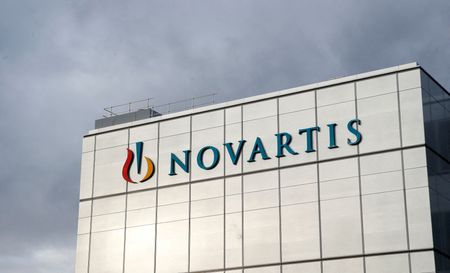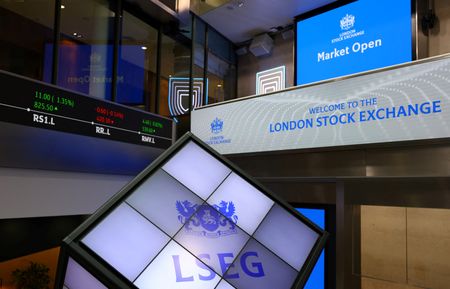By Dave Graham
ZURICH (Reuters) -Top Swiss officials will this week test whether big commitments to the U.S. can help secure relief from import tariffs, after pharma giant Roche followed its cross-town rival Novartis in announcing major investments in the United States.
Roche on Tuesday said it would invest $50 billion in the United States over the next five years, a day before Swiss Finance Minister Karin Keller-Sutter and Economy Minister Guy Parmelin lead a delegation on a three-day visit to Washington.
They want to underline how important Swiss business is to the United States as they seek to persuade President Donald Trump not to hit the country with tariffs that were initially set significantly higher than those for the European Union.
Switzerland was shocked by the tariffs and there is broad support in parliament for officials to show how many billions Swiss firms invest now and will do in future, said Sibel Arslan, deputy chair of the lower house foreign relations committee.
“This is the only way,” the Green Party lawmaker told Reuters. “Now we’ll have to see whether the strategy comes off.”
After the U.S. announced its import duties, one prominent Swiss lawmaker said Switzerland, which abolished its own industrial tariffs last year, should tell Trump it would invest $100 billion during his term. Others floated higher numbers.
Purely between Basel-based Roche and Novartis, which committed $23 billion earlier in April, the Swiss officials arrive in Washington armed with hefty investment pledges that Trump-friendly media in the U.S. have vigorously celebrated.
Roche said its investment was aligned with the government and part of ongoing discussions between Switzerland and the U.S.
Chocolate maker Barry Callebaut and engineering group ABB are among other firms to make commitments from Switzerland, the seventh-biggest foreign investor into the United States.
Keller-Sutter, who is also Switzerland’s rotating one-year president, spoke to Trump by telephone hours before he announced a 90-day pause on his original tariffs, which cut the 31% rate for Switzerland to the 10% now applied to most countries.
She is due to meet U.S. Treasury Secretary Scott Bessent on her Washington visit, which takes place during the World Bank and International Monetary Fund Spring meetings. Her government has not given details of other meetings.
GOLDEN EGG
For all the U.S. economic commitment demonstrated by the Swiss, Bern has hinted the Trump administration should not take its financial muscle for granted.
A day after Trump announced his tariffs, Economy Minister Parmelin warned they could work against the U.S. if they led to firms putting “the brakes on certain investments”.
Lawmaker Arslan agreed, saying Switzerland, whose export-oriented economy is bigger than that of many much larger countries, should not allow itself to be taken advantage of.
At around $100,000, Swiss GDP per capita was in 2023 about 20% higher than the United States, World Bank data show.
Switzerland is also home to around three times as many Fortune Global 500 companies per capita as the United States, led by the likes of Nestle, Glencore, Roche and Novartis.
Klaus Stoehlker, a Zurich-based public relations consultant, said given the difficulty even allies of Trump have had in steering him away from tariffs, the Swiss delegation was on a “journey of hope” in Washington.
But big investment announcements were the most powerful weapon Switzerland could deploy in attempting to remind Trump of the ties binding the U.S. and Swiss economies, he said.
Not only are Swiss companies among the top investors in the United States, they are also major sources of revenue for U.S. investors like Blackrock and the Vanguard Group that have big holdings in Swiss corporations, Stoehlker said.
“Economically speaking, Switzerland is part of the U.S.,” he said. “They’re not going to break this Swiss golden egg.”
(Reporting by Dave Graham; Additional reporting by John Revill; Editing by Hugh Lawson)











